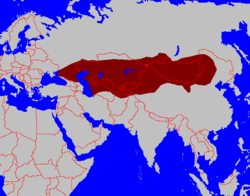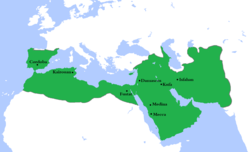There's a lot of difference between "heh, that was some epic/unexpected event" or "nobody could have expected this to happen" and "this is why it might have happened once you got most of the data and informations avaible".
History, by definition is an analytic or interpretative science : you begin from biased or incomplete point of view (which doesn't mean wrong) or sheer data (such as evidence of climat change) you have to consider and ponder.
Now, there's another consideration : it happened, contrary to all TL present there. Meaning that it's the standard from which historical consideration as much as allohistorical consideration would be judged : any TL deciding of a rough PoD and ignoring all of the context is then implausible because it doesn't holds much to the standard. You might say that every TL on AH.com is then implausible, and from an historical view it's not only this but impssible. Even if we don't know exactly why, it happened, it's settled. Predictive and explorative science can breach their own observations ("nothing is quicker than the speed of light") because it's not their departure point strictly speaking. In history, it's the alpha and omega,the departure point and where you must arrive.
Of course, holding allohistorical works, which are narrative and not scientific (even if they can support some historical or philosophical points, which I think is underused nowadays) to historical standards would be insane : it's why we say that such and such ATL is plausible or implausible, less as an historical statement, than a narrative statement about the suspension of disbelief from the point of view of someone with more specific historical knowledge.
Back to Mongols. A lot of people there have and will point why Mongol Conquests did make sense. Other might point reasons why they stopped as they did. It's interpretation and based on academic or pseudo-academic consensus, but that's an interpretation on real.
Interpretating data and sources AGAINST the idea Mongol conquests were made on such a scale is litterally impossible. A mu-koan of sorts.
It doesn't mean it couldn't have changed, notably because History isn't a mechanical happenstance but because humans that make it have, for a given variety, a sense of their own possibilities and history and might try to change it. It didn't, tough, and the complex network of events went trough what happened making it plausible by the virtue of being the only real, existing feature.
ASB, as plausibility/implausibility, when it comes to describe or label a timeline; is a narrative consideration and not an historical one : you can simply not apply it meaningfully there.

